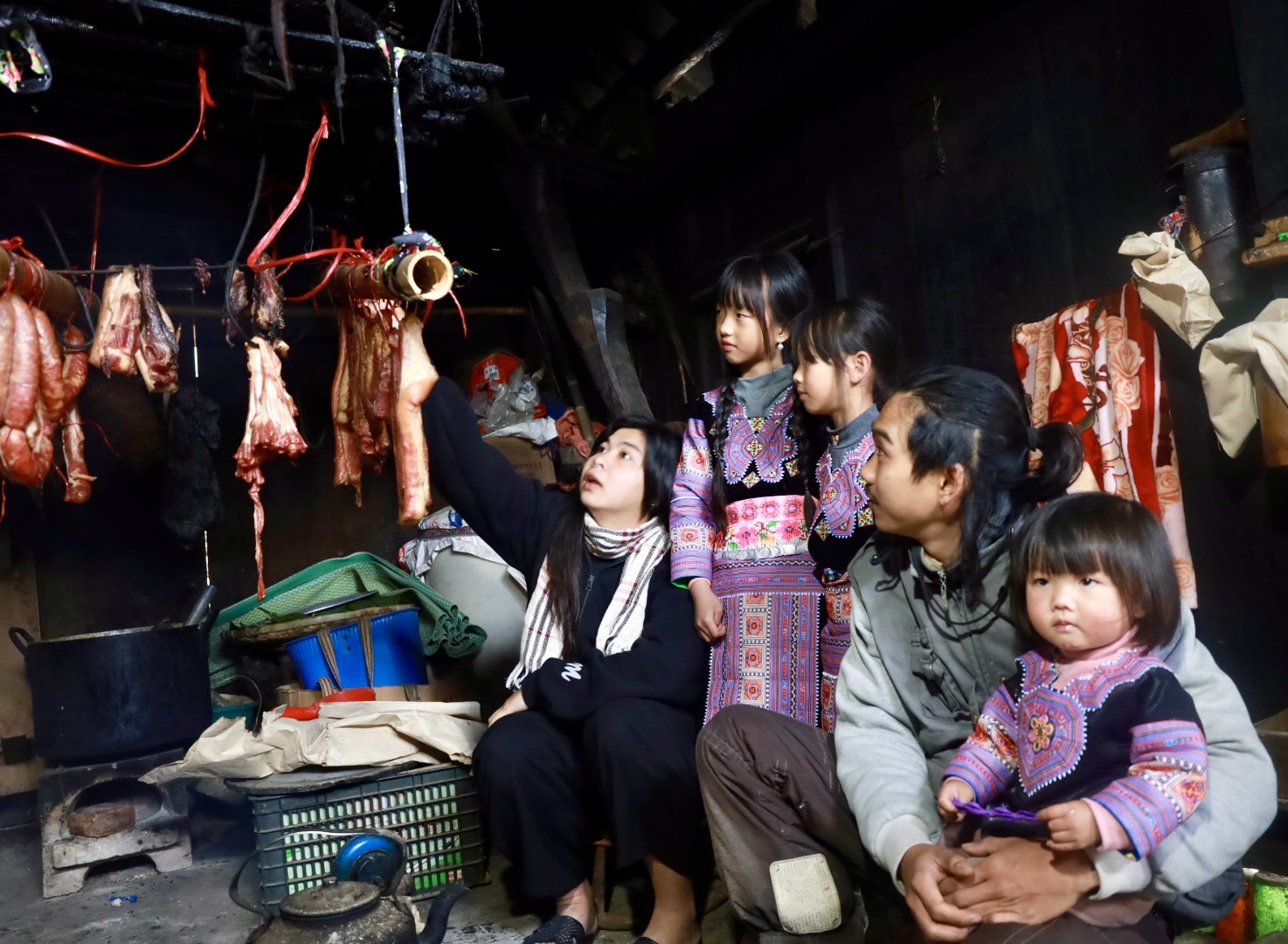
Community-based tourism has been thriving in Pa Co commune, Mai Chau district thanks to advantages in natural landscape and cultural identity.
In addition to homestay services in Cha Day village, several households
in other villages have started offering the services to enhance visitors'
experiences of the cultural identity of the Mong ethnic group.
Visitors enjoy the homestay model with authentic
local cultural experiences.
According to customs, the Mong people in Pa Co
use bamboo, earth, and wood to build their traditional three-section houses.
The kitchen and bedroom of the house’ owners are in the left section. The
heating stove and guest room are in the right section. Meanwhile, the central
largest section is used for the ancestral altar and serves as a common area for
family activities. The unique architecture is well-preserved by families in Pa
Co 1 village.
Hang A De is the first local resident who boldly
develop a homestay model to receive guests. He said he wants to provide visitors with a
rustic and close-knit way to experience locals' everyday life.
Recently, many international tourists and
visitors from southern provinces have chosen homestays when visiting Pa Co. Mai Thao, a tourist from Ho Chi Minh City, said
that besides the pristine and beautiful nature, she wants to explore much about
the culture of the Mong people in the mountainous district of Mai Chau.
Shesaid she booked the homestay online.
When in Pa Co, what impressed her most is that she was treated like a member in
that family. To welcome guests, the hosts redecorated their homes and prepared
sufficient bedding. She engaged in daily activities. Moreover, she was guided
to explore other tourism destinations and activities such as trekking through
jungles, "cloud hunting”, attending local markets, learning about traditional
crafts, and visiting a Mong space which is considered a mini cultural museum of
the Mong people.
Pauel, a visitor from France, said that
homestaying in Pa Co is a wonderful experience. When living with a local
family, he said he felt the warm atmosphere. He said everyone was very friendly and pleased
to answer his questions about local culture.
Phang A Song, Chairman of the communal Farmers'
Association, noted that in recent years, local tourism has developed, with many
attractive products and services being created to attract visitors. Especially
since the opening of the Mong ethnic cultural night market on weekends, the
demand for accommodations has increased significantly, and the community
guesthouses is often overloaded. Seizing this opportunity, some households have
gradually upgraded their accommodations. Over time, the homestays have
attracted more and more tourists.
Currently, in addition to traditional clothing,
local families preserve the architecture of traditional houses and daily
activities, helping visitors experience truly local culture.
A diverse chain of eco-tourism and resort destinations concentrated in Hoa Binh city and the districts of Tan Lac, Da Bac, and Luong Son… Along with the launch of several key high-quality resort tourism projects, these developments have reshaped the landscape and enhanced the appeal of Hoa Binh as a travel destination.
Boasting diverse terrain, a mild climate, and rich natural resources, Cao Phong district is increasingly asserting its place on Vietnam’s tourism map, attracting both domestic and foreign visitors. The district is renowned for its stunning landscapes, majestic mountains, a crystal-clear hydropower lake, and the unique cultural identity of local ethnic groups.
With its pristine landscapes, unique cultural heritage of Muong ethnic minority, and an expanding range of visitor experiences, Tan Lac district of Hoa Binh has fast become a captivating destination for both domestic and international tourists.
Until now, Sung village in Cao Son commune, Da Bac district remains the only Dao ethnic community in Hoa Binh province to develop a community-based tourism model. Beyond its untouched natural landscapes, cultural identity serves as the cornerstone attraction for visitors.
Alongside the diverse cultural identities of the Kinh, Muong, Tay, Thai, Dao, and Mong ethnic people, Hoa Binh province is also renowned as the "capital" of the northwestern Vietnamese cuisine, offering unique and distinctive dishes. At festivals, during Lunar New Year (Tet), or on significant family or community occasions, special dishes are prepared, leaving a lasting impression on visitors.
A Phong Linh (Yellow Tabebuia) flower garden in Thang village, Thach Yen commune, Cao Phong district is currently in full bloom, drawing a large number of visitors.



